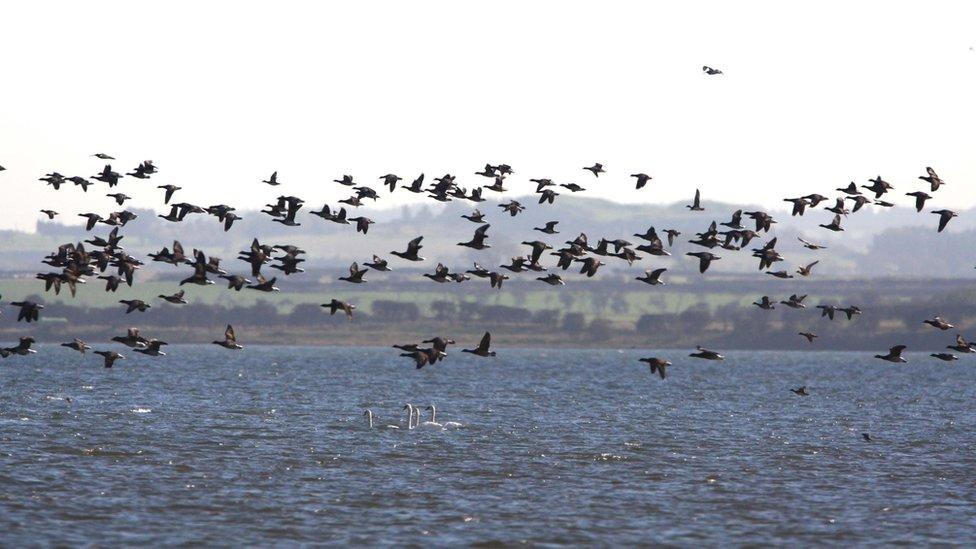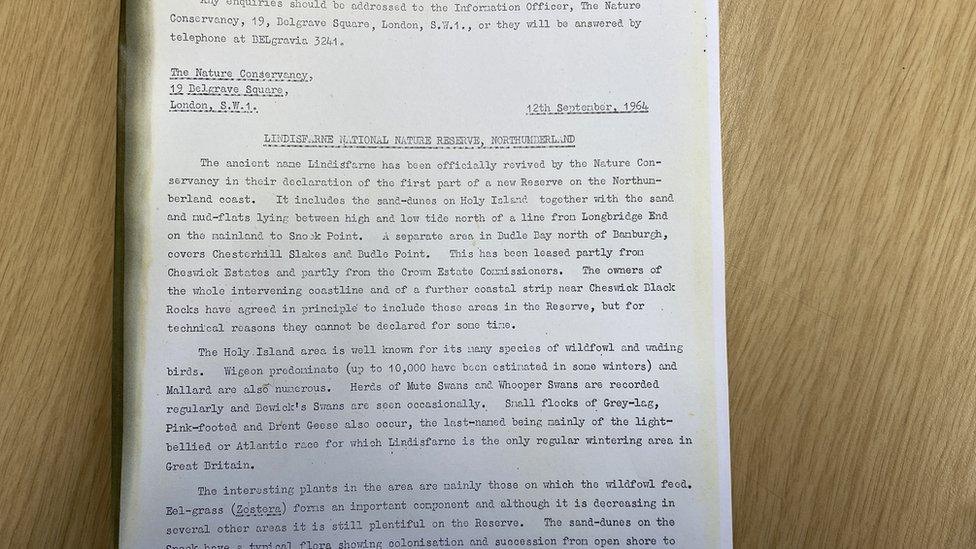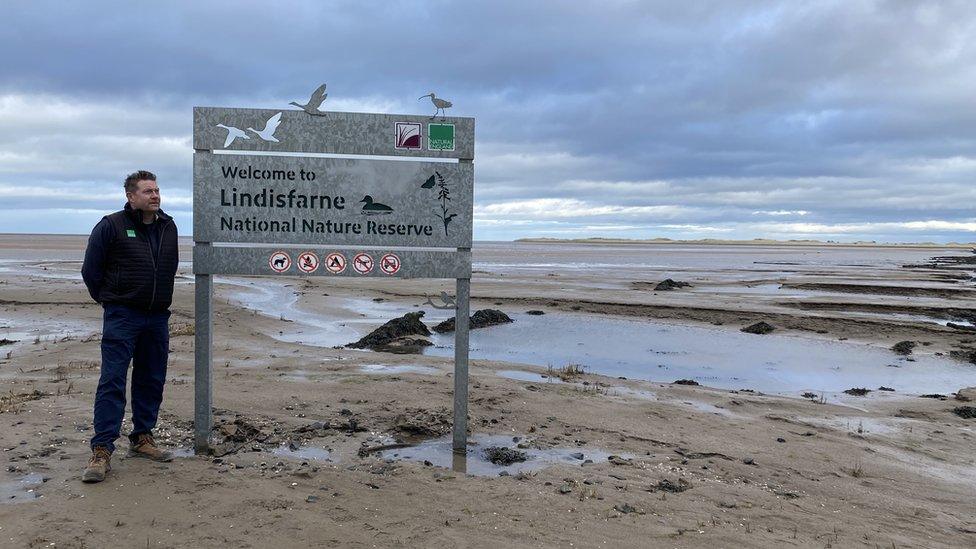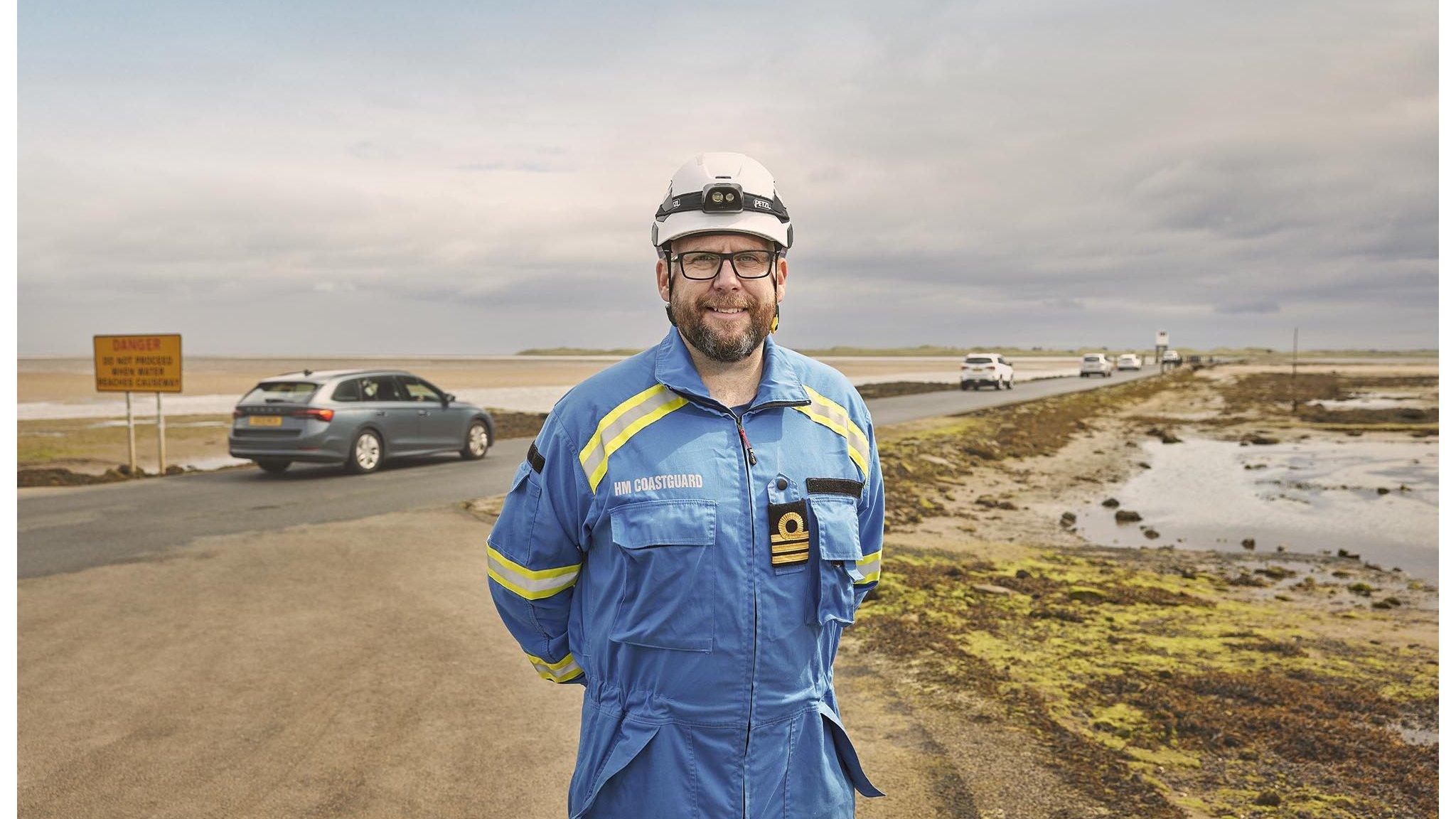Lindisfarne festivals mark 60 years of nature reserve
- Published

Lindisfarne is the winter home for 40% of the world's light bellied geese
A national nature reserve (NNR) visited by over one million people annually is holding a year of events to mark its 60th anniversary.
Lindisfarne NNR was designated in 1964 and covers 3,500 hectares along the Northumberland coast, including Holy Island.
In autumn and winter it is home to up to 60,000 migratory ducks, geese and wading birds.
The first event takes place this Saturday.

The original press release announcing the creation of the Lindisfarne NNR in 1964
There are currently 219 NNRs in England, established to protect important habitats, species and geology.
Andrew Craggs, Natural England's senior reserve manager for the Lindisfarne NNR, said: "It's a really, really important migratory site for birds.
"At this time of year you're going to be seeing things like bar-tailed godwit, redshanks, curlew, and that's one of the original reasons why the reserve was designated.
"Up to 60,000 birds come here annually."

Events celebrating the nature reserve run until October
The events programme, external to mark the 60th anniversary is being organised by Natural England's Andy Denton, who said: "We've got fun craft events for children, ranging through to wildlife experiences like sea and seal watches, and three special festivals looking at the whole range of wildlife and habitats that are here in this special place."
The programme ends with a Goose Festival in October, when light bellied Brent geese arrive from Svarlbard in the Arctic Ocean to feed on the rich mudflats.
Lindisfarne is their only regular wintering site in Britain, accommodating 40% of the world population.
All the events are free and most take place at the Window on Wild Lindisfarne building on Holy Island.
The first event is on Saturday 24 February and looks at solutions to marine pollution.

Follow BBC North East on Facebook, external, X (formerly Twitter), , externaland Instagram, external. Send your story ideas to northeastandcumbria@bbc.co.uk, external.
Related topics
- Published4 August 2023
